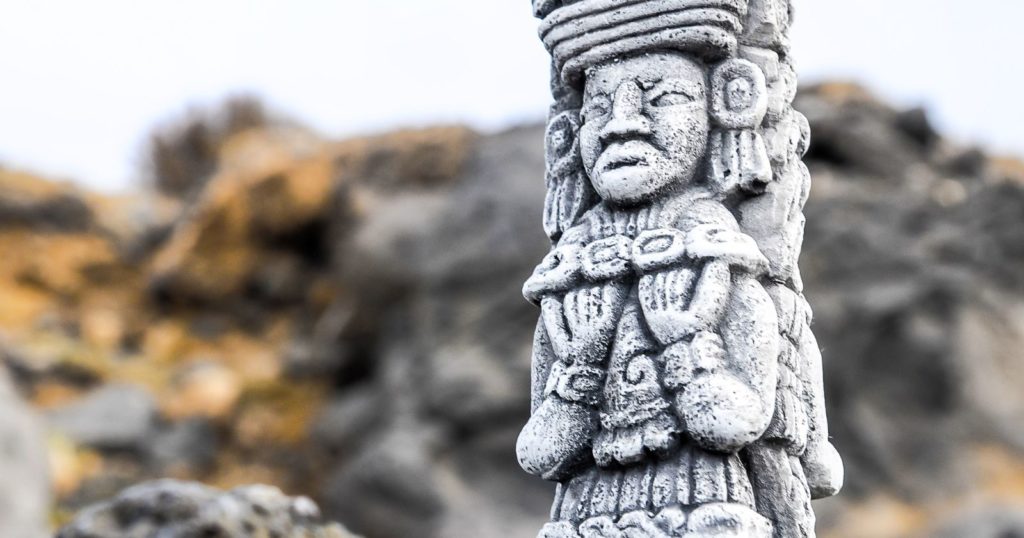In the vibrant world of astrology, each zodiac sign is a symbolic representation of celestial phenomena, reflecting distinct personality traits and inherent inclinations. While the modern understanding of zodiac signs finds its roots in a multitude of cultures, it is predominantly influenced by Greek astrology. In this deep dive, we will unravel the Greek names of the zodiac signs, their mythological origins, and their fascinating interplay with astrology.
The Constellation Connection: Understanding the Greek Zodiac
Greek astronomy is famous for its accurate mapping and intricate naming of the celestial bodies. The Greek version of the zodiac borrows from Babylonian astronomy but is closely interwoven with Greek mythology, bringing a unique layer of complexity and color to our astrological understanding.
Aries: The Ram (Κριός – Krios)
Aries, the Ram, or in Greek Κριός (Krios), opens the zodiac wheel. The name originates from the tale of the golden ram that rescued Phrixus and Helle, children of King Athamas, from their stepmother’s wrath. As a reward for its heroic deed, the ram was placed in the sky as a constellation. In astrology, Aries embodies traits of courage, determination, and leadership, resonating with the brave ram’s mythical attributes.
Taurus: The Bull (Ταύρος – Tavros)
Taurus, Ταύρος (Tavros) in Greek, is depicted as a bull, a creature of immense strength and vitality. The myth of Taurus is associated with Zeus, the king of the gods. Zeus transformed into a white bull to woo and abduct Europa, a Phoenician princess. Taurus, as a zodiac sign, represents stability, practicality, and a strong desire for earthly pleasures.
Gemini: The Twins (Δίδυμοι – Didymoi)
Gemini, or Δίδυμοι (Didymoi), symbolizes the twins Castor and Pollux. These mythological twins were born to Leda, but interestingly, had different fathers — Castor was mortal, and Pollux was divine. In astrology, Gemini encapsulates dualism, intellectual curiosity, and adaptability, reflecting the twins’ unique duality.
Cancer: The Crab (Καρκίνος – Karkinos)
Cancer, or Καρκίνος (Karkinos), signifies a crab. The creature’s mythological relevance lies in the Twelve Labours of Hercules. The crab was sent by Hera to distract Hercules during his fight with the Lernaean Hydra. Representing emotional depth, intuition, and protectiveness, Cancer echoes the crab’s sensitive nature.
Leo: The Lion (Λέων – Leon)
The next on our celestial journey is Leo or Λέων (Leon), a symbol of the regal Nemean Lion. The lion had impenetrable skin and could not be killed by mortal weapons. Hercules, in his first labor, defeated it using his strength. In astrology, Leo stands for bravery, pride, and theatricality, echoing the lion’s grandeur and fierceness.
Virgo: The Maiden (Παρθένος – Parthenos)
Virgo, or Παρθένος (Parthenos), is represented by a maiden, often associated with the goddess Demeter or her daughter Persephone, the goddess of vegetation and fertility. In astrology, Virgo denotes purity, service, and analytical ability, resonating with the nurturing aspect of these goddesses.
Libra: The Scales (Ζυγός – Zygos)
Libra, or Ζυγός (Zygos), symbolizes the scales of justice, associated with Themis or Dike, both Greek goddesses of justice. Libra is the only zodiac sign represented by an inanimate object. In astrology, Libra signifies balance, justice, and partnership, mirroring the impartiality of the scales.
Scorpio: The Scorpion (Σκορπιός – Skorpios)
Scorpio, or Σκορπιός (Skorpios), represents a scorpion. The most popular myth connected with Scorpio is the tale of Orion, the hunter, who boasted that he could kill all living creatures. To punish his arrogance, Gaia sent a scorpion, which killed Orion. Scorpio in astrology symbolizes transformation, power, and intensity, attributes that align with the scorpion’s deadly power in mythology.
Sagittarius: The Centaur Archer (Τοξότης – Toxotes)
Sagittarius, or Τοξότης (Toxotes), is portrayed as a centaur archer, commonly associated with Chiron, the wisest of all centaurs. Despite being a centaur, Chiron’s character was of a different nature. He was wise, just, and a renowned tutor. In astrology, Sagittarius signifies wisdom, optimism, and the pursuit of knowledge, mirroring Chiron’s scholarly pursuits.
Capricorn: The Sea-Goat (Αιγόκερως – Aigokerós)
Capricorn, or Αιγόκερως (Aigokerós), is depicted as a sea-goat. The creature is tied to the story of the god Pan, who had the lower body of a goat and the tail of a fish. When Typhon, a terrifying monster, attacked the gods, Pan transformed into a sea-goat to escape. Capricorn, in astrology, stands for discipline, patience, and practicality, qualities attributed to Pan’s survival instincts.
Aquarius: The Water Bearer (Υδροχόος – Hydrochoos)
Aquarius, or Υδροχόος (Hydrochoos), represents the water bearer, often linked to Ganymede, a young prince whom Zeus appointed as his cupbearer. In astrology, Aquarius denotes originality, humanitarianism, and progressive thinking, resonating with Ganymede’s elevated status among the gods.
Pisces: The Fishes (Ιχθύες – Ichthyes)
Finally, Pisces or Ιχθύες (Ichthyes), symbolizes two fishes. In Greek mythology, these fish saved Aphrodite and Eros from the monster Typhon. The mother and son duo transformed into fish and swam to safety. In astrology, Pisces represents compassion, spirituality, and imagination, mirroring the selfless act of the fishes in the myth.
These Greek zodiac signs not only portray a rich tapestry of ancient tales but also present a mirror to human existence, symbolizing the universal human quest for wisdom, survival, elevation, and compassion.
The Zodiac as A Mirror: Greek Mythology and Astrological Interpretation
The astrological interpretations of the zodiac signs, deeply rooted in Greek mythology, provide a vivid illustration of human life. The stories behind each zodiac sign and their corresponding traits serve as a symbolic lexicon, translating celestial observations into meaningful insights about human behavior.
From Heroic Feats to Humble Acts
The zodiac wheel begins with the daring Ram and ends with the compassionate Fishes, encompassing the full spectrum of human characteristics. Starting from Aries’ boldness, the zodiac takes us through Taurus’ endurance, Gemini’s duality, Cancer’s sensitivity, Leo’s courage, and Virgo’s analytical prowess, mirroring the complexity of human nature.
Further, Libra’s pursuit of balance, Scorpio’s transformative energy, Sagittarius’ thirst for knowledge, Capricorn’s discipline, Aquarius’ forward-thinking, and Pisces’ empathy shed light on the virtues that elevate human experience. Thus, the Greek zodiac, with its captivating narratives and diverse symbolism, provides a nuanced understanding of individual identity and communal harmony.
A Celestial Guide to Self-discovery
Astrology, drawing from the Greek zodiac, serves as a celestial guide to self-discovery. It unravels the underlying patterns and energies that influence our personalities, behaviors, and interactions. The Greek names and myths behind the zodiac signs add depth to astrological analysis, offering a layered perspective on human nature and destiny.
The Zodiac in Contemporary Culture
While astrology is thousands of years old, its relevance remains unwavered in modern times. The Greek zodiac signs continue to be a popular cultural symbol, influencing various facets of contemporary life, from personality analysis to fashion trends, literary themes, and artistic expressions.
Astrology and Personality Analysis
The traits associated with the Greek zodiac signs are often used to analyze personality characteristics and predict behavioral tendencies. Astrologers and enthusiasts alike delve into the zodiac to gain insights into individual temperaments, strengths, weaknesses, and potential life paths.
The Zodiac in Art, Literature, and Fashion
The rich mythology and symbolic significance of the Greek zodiac signs also permeate the realms of art, literature, and fashion. Artists and writers draw from these celestial narratives to create compelling works, while fashion designers incorporate zodiac symbols and traits into their collections, reflecting the enduring influence of these ancient signs.
Through these various expressions, the Greek zodiac continues to touch lives, facilitating self-reflection, fostering creativity, and instilling a sense of connectivity with the cosmos.
Decoding the Stars: The Astrological Significance of Greek Zodiac Signs
The symbolic layering of Greek mythology over the zodiac’s astrological understanding provides a comprehensive tool for astrologers to interpret celestial patterns. The stars, thus, become a celestial codex, their configurations and movements serving as messages from the cosmos.
Greek Mythology: A Key to Astrological Understanding
Astrologers, armed with the narratives of Greek mythology, can elucidate the complex meanings of celestial configurations. Each zodiac sign’s mythological backstory adds depth to astrological readings, revealing the intricate dance of cosmic energies influencing human life.
The Zodiac as A Cosmic Blueprint
The zodiac wheel, with its Greek mythological underpinnings, represents the cosmic blueprint of human life. It encapsulates our strengths and weaknesses, our dreams and fears, and our inherent tendencies, providing a road map to navigate the journey of life.
The Eternal Dance: Astrology and Humanity
The fascinating interplay of astrology and humanity has been a subject of intrigue and study for centuries. The Greek zodiac, with its rich mythological backdrop, forms a bridge between the cosmos and humanity, reminding us of our deep connection with the universe.
A Timeless Connection
The tales spun by the stars have been guiding humanity since ancient times, with the Greek zodiac playing a significant role in shaping astrological knowledge. The starry narratives continue to influence us, guiding us towards self-understanding and encouraging us to embrace our cosmic heritage.
Astrology: A Cosmic Compass
Astrology, using the Greek zodiac, serves as a cosmic compass, helping us align our lives with the universal rhythm. It aids in deciphering the cosmic patterns, providing us with insights into our inner selves, our relationships, and our life purpose.
As we conclude our celestial journey through the Greek zodiac, it’s fascinating to see how these ancient symbols and stories continue to resonate with us. They embody our hopes, fears, dreams, and struggles, bridging the gap between the cosmos and human existence. Through these signs, we not only understand ourselves better but also appreciate our place in the grand cosmic design.
Resources:
- “The Complete Book of Astrology” by Caitlin Johnstone
- “Greek Mythology: An Introduction” by Fritz Graf
- “The Astrology Bible: The Definitive Guide to the Zodiac” by Judy Hall




